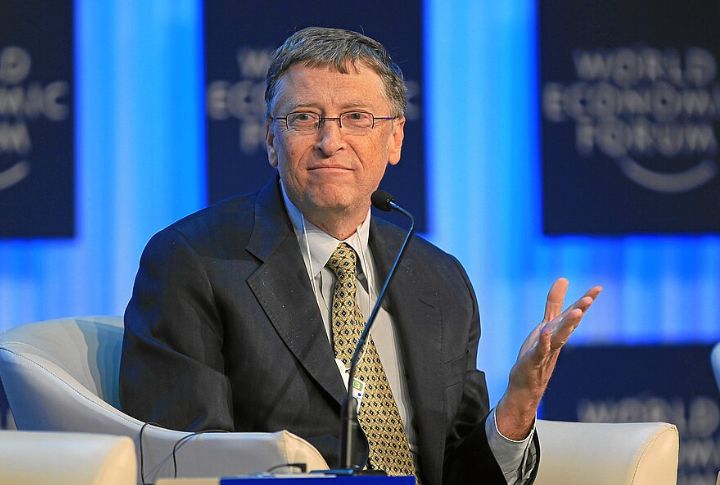
Certain people treat ambition like air itself and push forward, even as the world urges them to slow down. Their choices are driven by pressure, instinct, and the belief that comfort can wait. As you move through this list, you will see how deep that mindset runs and why it still shapes how many people reach the top.
Mark Cuban’s No-Vacation Marathon
Pressure hit Mark Cuban, a future entrepreneur long before he was a billionaire, the moment his job disappeared, and the shock pushed him to build “MicroSolutions” for companies struggling with early PC technology. Long nights on an apartment floor blurred into client pursuits that felt urgent rather than optional. Each choice came from a need to stay afloat, not an interest in balance.
Jeff Bezos’s All-Day Grind
Amazon began as a tiny bookstore run from a garage, and Jeff Bezos, who had just left a hedge-fund job to build it, watched every detail as if one mistake could erase the company. A door he used as a desk held the orders he packed and the customer issues he handled before dawn. He pushed himself that hard because he believed constant effort, not balance, gave Amazon its best chance to survive.
Steve Jobs’s Founder Mode Mastery
Inside Apple’s early teams, people noticed how Steve Jobs, then the intense co-founder behind the first Macintosh, caught flaws long before anyone else saw a problem. Even the internal components customers would never view had to meet his standard, and weak prototypes disappeared fast. He believed Apple stayed strong only when pressure stayed constant, not when comfort guided the pace.
Elon Musk’s Marathon Weeks
When production problems hit Tesla or SpaceX, Elon Musk didn’t step back—he moved in. The factory floor became his workspace so he could spot issues the second they appeared. Long stretches of 100-hour weeks followed because solving bottlenecks felt more urgent to him than taking personal time.
Joe Lonsdale’s Sacrificial Focus

Palantir began when Joe Lonsdale, who later became known as a major tech investor, noticed how poorly institutions handled sensitive information, and that realisation drew him deeper into technical challenges than most founders would tolerate. Each breakthrough exposed another layer that demanded sharper precision. His days narrowed around the mission until balance no longer seemed connected to the work.
Bill Gates’s Non-Stop Hustle
In Microsoft’s early years, Bill Gates obsessed over the code behind the software millions would eventually use. He feared tiny mistakes could snowball into major failures, so he spent endless hours reviewing logic line by line. Weekends disappeared under that habit because precision felt more important than rest.
Warren Buffett’s Reading Ritual
Warren Buffett, one of the most famous investors alive, didn’t build his fortune on instinct. He built it on reading. Buffett moved through newspapers and financial analyses for hours because he believed information grew in value the more he absorbed it. That habit became his version of daily training.
Robert Herjavec’s Improvement Obsession
Robert Herjavec, now known for his seat on “Shark Tank”, grew up in a family that had very little, and that memory stayed with him. He said yes to opportunities because he never wanted to feel stuck again. Over time, that willingness pulled him into the tech world, where constant progress became his safety net.
Kobe Bryant’s Mamba Dawn
Some athletes rely on talent. Kobe Bryant, who became a legend in the NBA, used the quiet before sunrise to push his game further than anyone expected. Those four a.m. sessions were not about drama or discipline for its own sake. They created the steady confidence he leaned on when championships were on the line.
Serena Williams’s Competitive Lock-In: Mastering the Game Through Relentless Repetition
Williams built her dominance through a training rhythm that rarely paused, even when injuries signalled she should slow down. She drilled serves until her shoulders ached because she believed mastery depended on consistency more than comfort. That commitment shaped a career where balance never outweighed competitive urgency.
